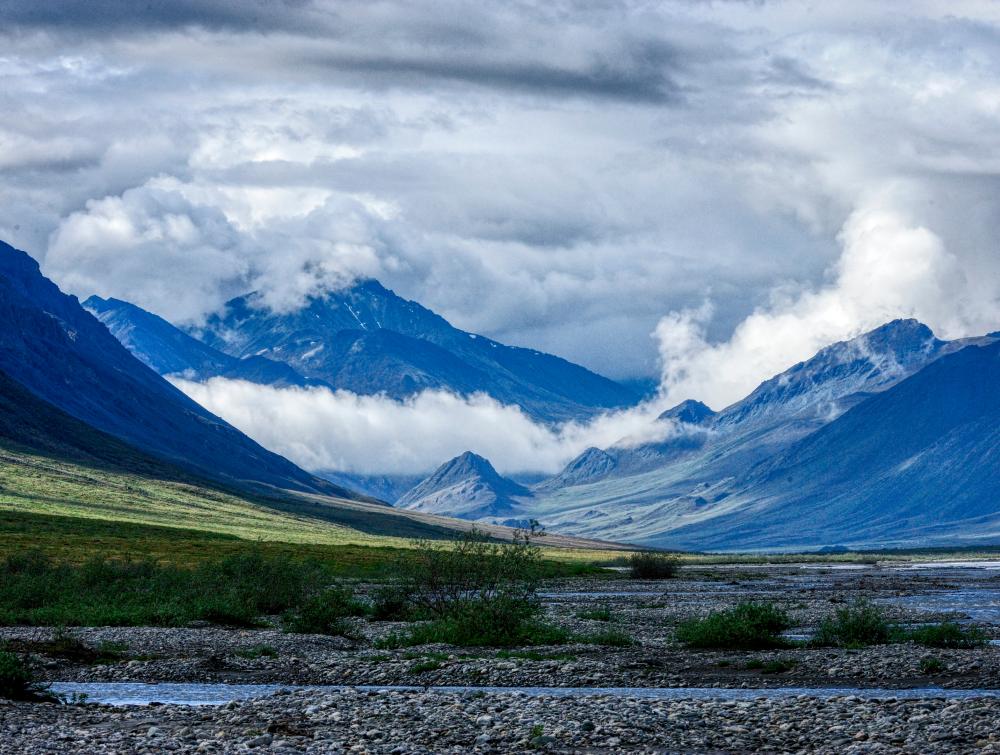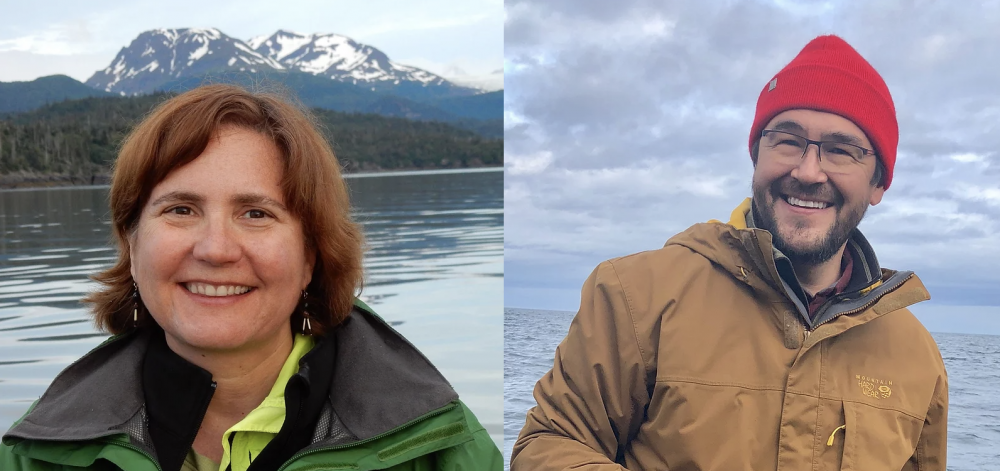Engineering to protect the Arctic: TWS Alaska staff members awarded Constellation Prize

Edward Bennett/Bennett Images LLC
Pursuing protections for public lands based on scientific and technical data while prioritizing biodiversity and Indigenous rights are cornerstones of our work at The Wilderness Society, so we are proud that two of our staff members—Arctic Program Director and engineer Lois Epstein and Alaska State Director Karlin Itchoak—are recipients of the inaugural Constellation Prize.
“We’re so excited about the incredible work that engineers and their collaborators are doing to protect the environment and fight for justice”, said Darshan Mukesh Arvinda Karwat, a co-creator of the prize and an assistant professor at Arizona State University. The Constellation Prize recognizes engineers and their collaborators working for environmental protection, social justice, human rights and peace.

The winners of the Constellation Prize, Lois Epstein (left), Engineer & Arctic Program Director and Karlin Itchoak (right), Alaska State Director
The 2020 Constellation Prize for Biodiversity and Indigenous Rights recognizes Epstein and her supervisor, Itchoak, for their response to the Tax Cuts and Jobs Act of 2017 which opened the 1.56 million-acre Arctic National Wildlife Refuge coastal plain to oil and gas development. Epstein, a licensed engineer, worked with Itchoak and other colleagues to develop a map that illustrated the probable extent of development under the law. In addition to helping news reporters and the general public better understand the scale of drilling’s potential impacts on the coastal plain and the misleading nature of the law’s 2,000 acre development limitation, an early version of the map—which came together through the beautiful graphics work of The Wilderness Society’s cartographic designer, Marty Schnure—was featured in a U.S. House of Representatives hearing.
“Since our founding in the mid-1930s, The Wilderness Society has worked to prevent oil and gas development in the Arctic Refuge coastal plain, both to ensure continued subsistence resources for Indigenous communities and to protect this irreplaceable Arctic landscape,“ Epstein said. “I am glad my technical knowledge of the oil and gas industry could contribute to our ongoing efforts to protect the refuge.“
The "sprawling oil development would have a strongly negative impact on the Porcupine Caribou Herd, the Gwich’in people, and the coastal plain ecosystem in general.” Itchoak said. “The Gwich’in people know the coastal plain as ‘Iizhik Gwats’an Gwandaii Goodlit’ (The Sacred Place Where Life Begins) and depend on the herd for their subsistence and way of life. Protecting this wild landscape and the human rights of the Gwich’in and Iñupiat peoples, who have stewarded these lands for thousands of years, is a top priority of The Wilderness Society.”
We’re proud that the innovative work of Epstein and Itchoak is being recognized with a Constellation Prize, and of the company they’re keeping. Other inaugural recipients of the prize were:
- For Community Collaboration: The CREATE Lab at Carnegie Mellon University and Allegheny County Clean Air Now, a grassroots organization fighting for environmental justice, are celebrated for their creative and impactful partnership that resulted in the closure of a highly polluting industrial facility.
- For Policy Impact: Jay Egg, of geothermal consulting firm EggGeo, and Keith Schue, technical advisor and co-chair of the Science Committee of the Sheridan Hollow Alliance for Renewable Energy, are recognized for championing renewable energy solutions to power the Empire State Plaza government buildings in Albany, N.Y.
- For Engineering Education: Khalid Kadir, a lecturer at the University of California, Berkeley, is honored for his commitment to inspiring the next generation of engineers to integrate social and environmental justice into their work.
